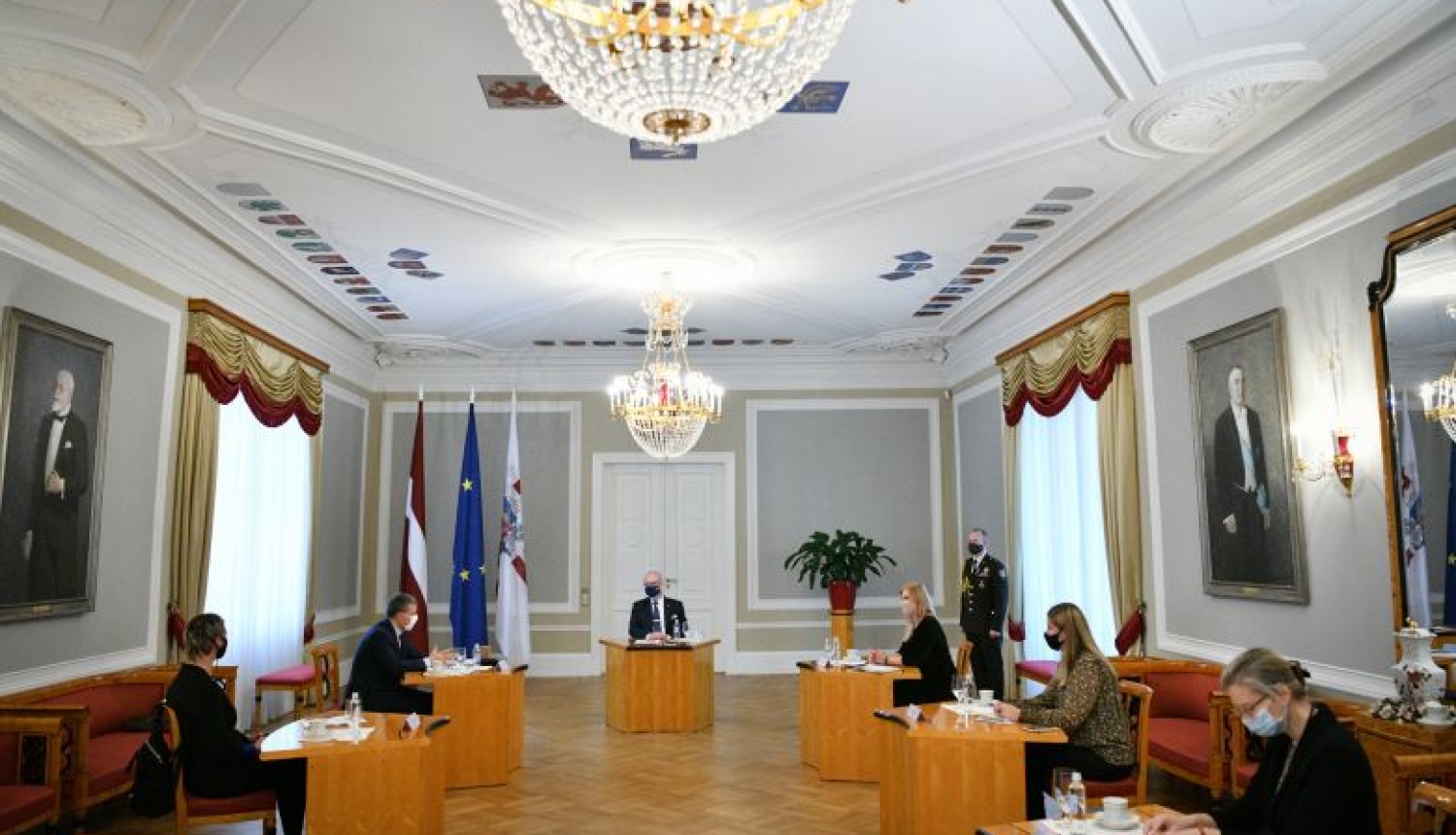Both representatives of the Association thanked President Levits for taking the meeting and giving opportunity to express the opinion of Association members. President is the only high-level official who has agreed to a bilateral meeting on current challenges and priorities for social workers. One of the issues that has raised serious concerns among members of the Association is the proposal of the Ministry of Finance and Ministry of Welfare to delegate tax collection monitoring to municipal social services.
President Levits responded to concerns of the Association members by underlining that he supports tax reform in principle but it must be well thought out. Reforms should not be decided in hurry and without giving proper attention to diverse everyday work mobility and social care system needs.
According to Egils Levits, budget package is not the right vehicle for meaningful tax reform. Proposed laws have not been thoroughly discussed with those whom they will affect, which has caused a fair bit of controversy and concern among people. ‘I have concerns about the quality of some of the legislative initiatives from a legal point of view. I am worried about inability of those behind the proposal to coherently explain how legislative changes will affect various target groups once these laws come into effect. Last minute changes and mark-ups, as early as first reading, mean that proposal has been too rough to begin with. That is not what we expect from good laws,’ said President Levits.
President of Latvia also mentioned that the ruling coalition has taken the right step by discarding the idea to delegate self-employed tax collection monitoring functions to local social services. It was also decided that low income earners who are unable to meet the minimum social contributions requirements will not have to prove to social services that their income is legitimate. ‘Coalition has listened to objections raised by the public and myself on numerous occasions and decided to withdraw the absurd proposal to request low income earners and precarious workers, including those who make their living off royalties, pay taxes from income they have not gained,’ stressed the President of Latvia.
Meeting also focused on possible improvements to national social policy. It should have stronger focus on reduction of poverty, support to different social groups to help people lead a meaningful social life, as well as promoting social policy dialogue between the government and social partners. It was also underlined that public attitudes towards various social issues also play a crucial role. There is a need to change people’s attitude towards more inclusive education for various social groups, access to transport, development of road infrastructure, etc. Representatives of the Association confirmed its commitment to engage in meaningful social dialogue with national policy makers to make social assistance system in Latvia better.





